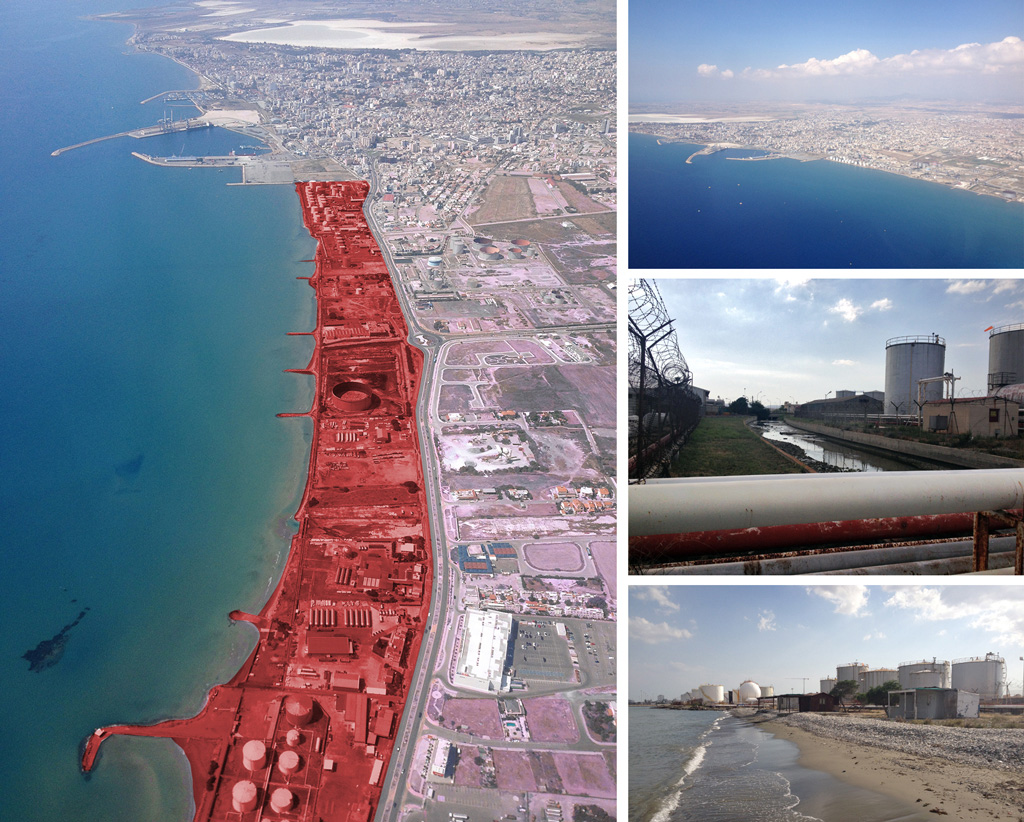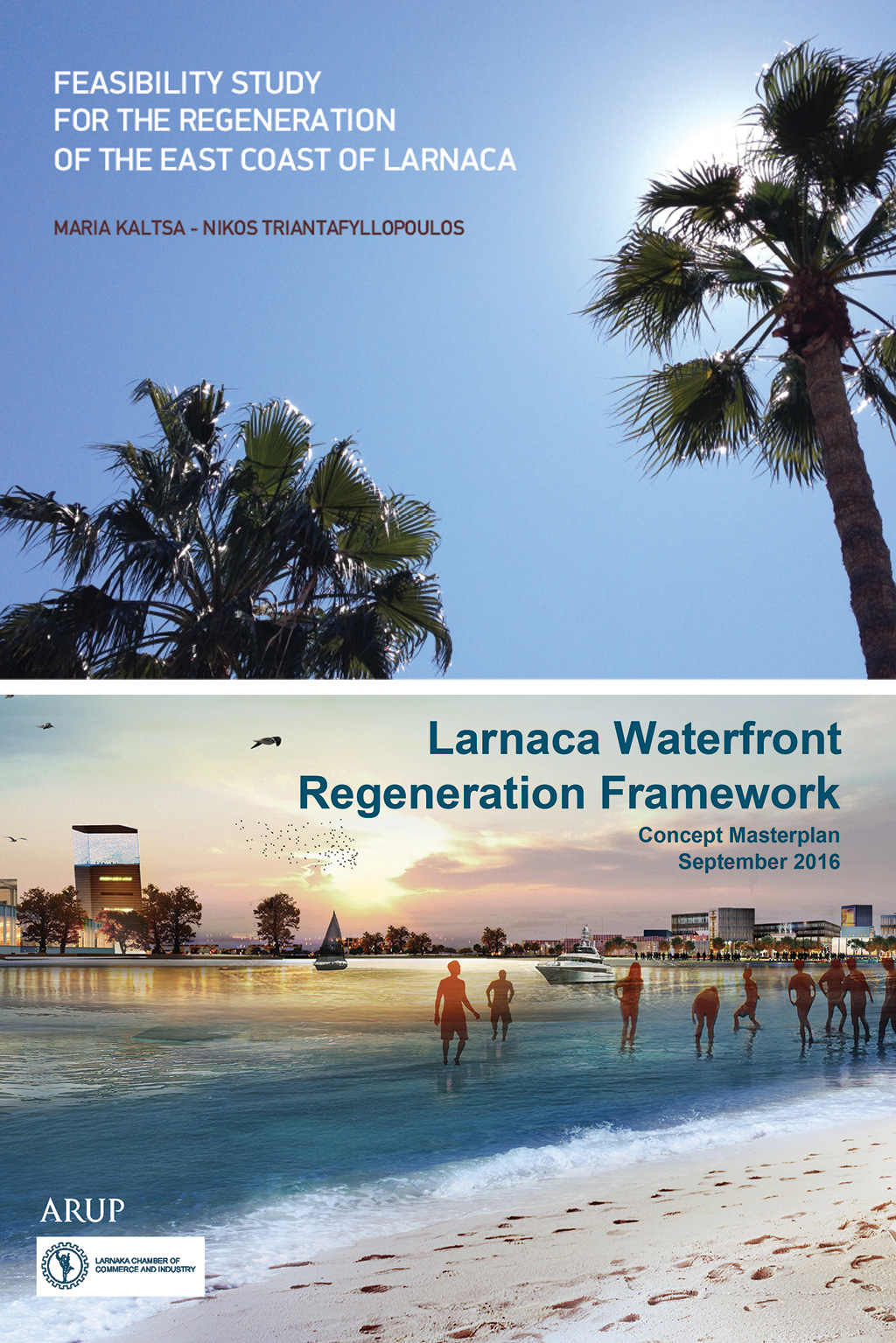

FEASIBILITY STUDY FOR THE REGENERATION OF THE EAST COAST OF LARNACA IN CYPRUS (2016)
Due to the relocation -away from Larnaca- of the settlements of the oil companies in Cyprus, the city's east coast will be regenerated. A new Area Plan crafted by the authorities will determine the planning terms for this regeneration, whereas the government expressed interest to compensate the companies for their relocation costs by building development value for their properties. The oil companies financed (a) this feasibility study for the rehabilitation and development of the area, and (b) a design-led concept master plan by ARUP; the Larnaca Chamber of Commerce and Industry commissioned both studies and followed up their development and delivery. The feasibility study fed with information the crafting of a viable master plan that reconnects the east coast with the city, capitalizing on a dramatic transformation, and regards the project as a catalyst for the sustainable revitalization of the broader region with benefits extending way beyond the city boundaries. The costs for the recovery of the sea front and for the coastal protection infrastructures were assessed, and also several development scenarios proposed by ARUP.
Site: 350 hectares
M. Kaltsa-Architect, Nikos Triantafyllopoulos - Assistant Professor of Urban Planning & Real Estate, UTH
The treatment and regeneration of this vast brownfield site is expected to lead to the creation of an urban environment of very high quality, and to an integrated, sustainable development of the area. The work comprised an analysis of the official Larnaca city plans and development programs, and the planning and building code regulations that apply nationally in Cyprus. An in-depth market research was included, covering the type, size and cost of building infrastructures, the potential value of real estate, rental values, market values, business take-up etc. By employing financial models, various development examples were examined in the context of the Concept Master Plan which was produced in parallel by ARUP, and also their economic assessment. The feasibility study deliverables are expected to contribute in defining the terms of development, and in identifying and managing possible risks. They also indicate the appropriate processes to enable new planning regulations, and implementation possibilities with regards to project phasing, funding, financing, land pooling and SPV possibilities.